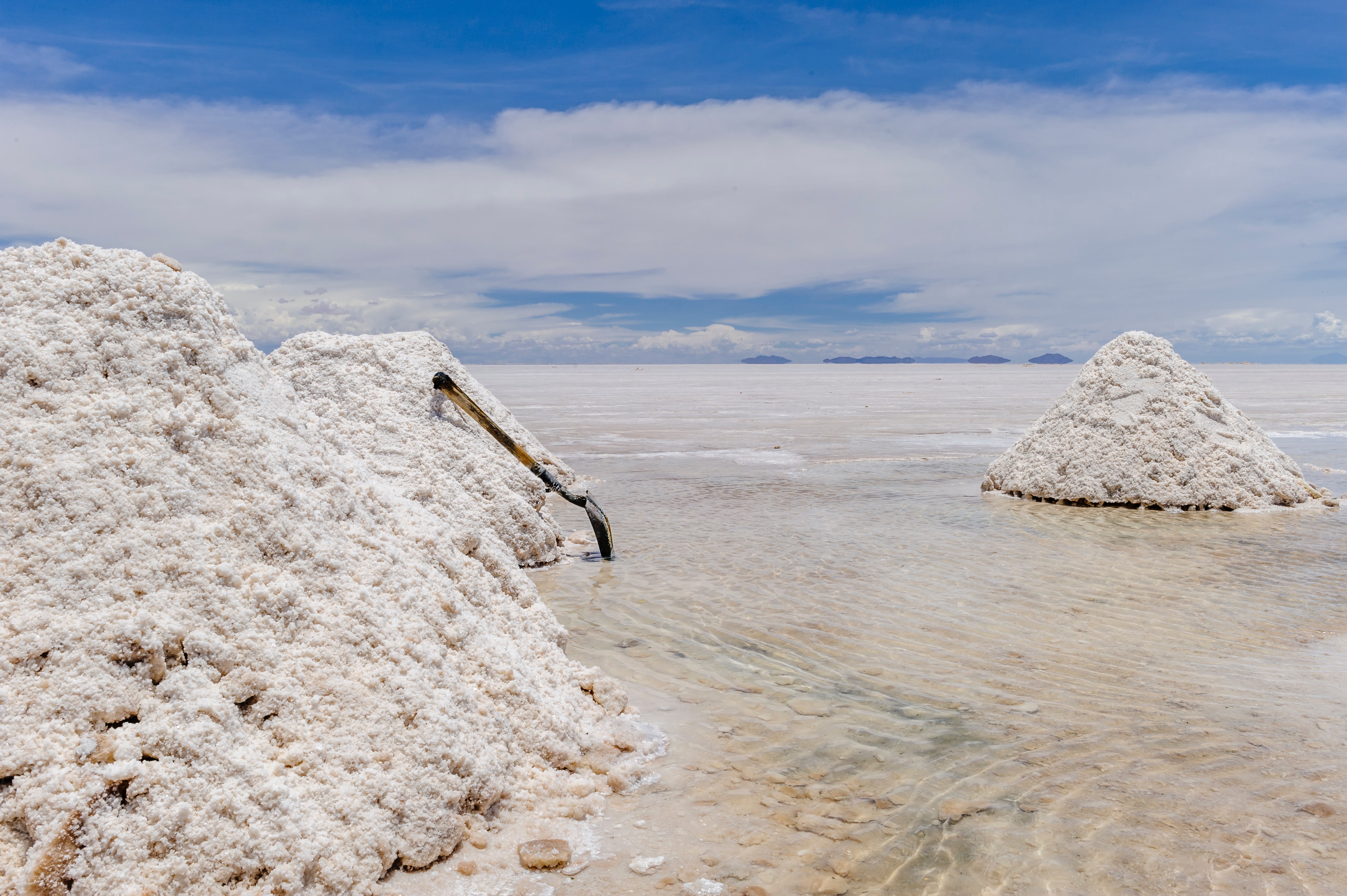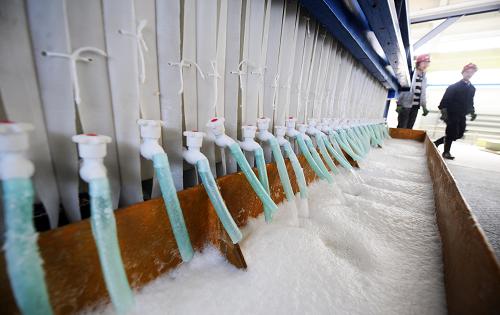With the increasing global demand for environmentally friendly and sustainable energy, the new energy industry is developing rapidly, especially in electric vehicles and energy storage systems, and the demand for lithium batteries has risen sharply. As an important lithium resource development method, lithium extraction from salt lake plays a crucial role in the new energy industry. In this paper, we will discuss in depth the application of self-cleaning filters in lithium brine mines in salt lakes and their enhancement and optimisation of business, to help similar enterprises understand the advantages and application prospects of this equipment, so as to improve production efficiency and economic benefits.
Background
The main task of the Salt Lake Brine Lithium Sulfate Extraction Project is to extract lithium sulfate from salt lake brine. This process requires an efficient water treatment system to ensure the purity and stability of the water quality during the extraction process, which in turn improves the lithium extraction rate and product quality. The self-cleaning filter, with its high efficiency, automation and low maintenance cost, has become an ideal choice to solve this problem.

Use of units and working conditions
Using unit: a salt lake brine extraction of lithium sulfate project
Working conditions: deep water pumping brine, the main impurities are sediment and brine worm eggs (floating state)
Medium state: the original brine chemical type is Cl-Na type, pH value is between 7.97 and 8.08.
Equipment material: 316L stainless steel
Equipment working parameters
Motor: high performance motor
Filtration precision: 38μm
Flow rate: 250m³/h
Working pressure: 0.4MPa
Self-cleaning filter
The self-cleaning filter provides three independent control modes of differential pressure, time and manual control through the intelligent control box to ensure that the filter can operate normally under various circumstances. The power distribution requirement of its control system is three-phase 380V, 50HZ AC, and the design service life of the equipment is more than 10 years. The cleaning process of the self-cleaning filter does not flow continuously, without manual guarding, with a high degree of automation, suitable for complex working environments.

The operation process of the self-cleaning filter is as follows:
1. **Differential pressure monitoring**: When the differential pressure between the filter inlet and outlet reaches the preset value or reaches the specified cleaning time, the self-cleaning process starts automatically.
2. **Cleaning steps**:
- **Step A**: Open the automatic drain valve located on the self-cleaning filter.
- **Step B**: The motor drives the cleaning brush inside the self-cleaning filter screen, and the cleaning brush makes a circular movement on the inner side of the filter screen, discharging the impurities on the filter screen through the drain valve.
The whole cleaning process takes about 15 seconds (can be set according to user requirements), and the import and export do not need to be closed during cleaning, and the system does not stop flowing to ensure that the filter always maintains high efficiency during operation.

Advantages of self-cleaning filter
High automation
There is no need for human intervention, and automated operation is achieved through the intelligent control box. This level of automation not only improves work efficiency, but also greatly reduces the possibility of human error, ensuring the continuity and stability of the production process.
High efficiency
The cleaning process of the self-cleaning filter is not flowing, ensuring continuous system operation and reducing production downtime. This is particularly important for lithium extraction projects in salt lakes that require continuous production, as any downtime can lead to lost production and reduced efficiency.
Low Maintenance
The automatic cleaning function reduces the frequency and cost of manual maintenance and extends equipment life. Reducing maintenance frequency reduces operator labour intensity and risk, improving overall safety and economic efficiency.
High Filtration Accuracy
The 38μm filtration accuracy effectively removes sediment and eggs, ensuring a smooth extraction process. This high-precision filtration ensures the purity of the water, which improves the extraction rate of lithium sulphate and the quality of the final product. It helps customers to gain more profits.

Application Case Studies
Case 1: Improve the efficiency of lithium extraction
After using self-cleaning filters in a salt lake lithium project, the efficiency of lithium extraction has been significantly improved. In the past, due to the presence of impurities such as sediment and eggs, the equipment in the lithium extraction process is often clogged and worn out, resulting in frequent downtime for maintenance. Since the introduction of self-cleaning filters, these problems have been effectively solved, lithium extraction efficiency increased by 20%, and the annual output increased accordingly.
Case 2: Reducing Maintenance Costs
Another enterprise has significantly reduced maintenance costs through the use of self-cleaning filters. Due to the automatic cleaning function of the equipment, the number of maintenance times has been reduced by 50%, and the frequency of filter element replacement has been greatly reduced. Combined with the intelligent control system, the entire filtration process is fully automated, easy to operate, and maintenance costs have been reduced by 30%.
Case three: improve product quality
After adopting the self-cleaning filter, the product quality of a salt lake lithium enterprise has been significantly improved. The high-precision filtration effectively removes the impurities in the water, ensures the purity of lithium sulfate, and improves the competitiveness of the products in the market. As a result, the company has obtained more international orders and expanded its market share.
Market Prospect and Potential Demand
With the rapid development of the new energy industry, the demand for high-purity lithium products will continue to grow. The wide application of self-cleaning filters in lithium extraction projects in salt lakes has proved their significant advantages in improving production efficiency, reducing maintenance costs and enhancing product quality. In the future, more lithium extraction companies will recognise the importance of self-cleaning filters and gradually adopt this advanced equipment to optimise their production processes.
Conclusion
The successful application of self-cleaning filters in the Salt Lake lithium brine project demonstrates their superior performance in high-altitude, high-impurity environments. By providing efficient, automated and low-maintenance filtration solutions, self-cleaning filters provide important support for the sustainable development of the new energy industry.
For enterprises engaged in lithium extraction from salt lakes, the adoption of self-cleaning filters not only improves production efficiency and reduces operating costs, but also significantly improves product quality, thus enhancing market competitiveness. We hope that through this article, more lithium extraction enterprises can recognise the many advantages of self-cleaning filters and apply them in actual production to help enterprises achieve greater success in the field of new energy.
For further information about self-cleaning filter or technical support, please feel free to contact us. We will provide you with the most professional services and solutions to help your enterprise achieve efficient, environmentally friendly and sustainable development goals.














